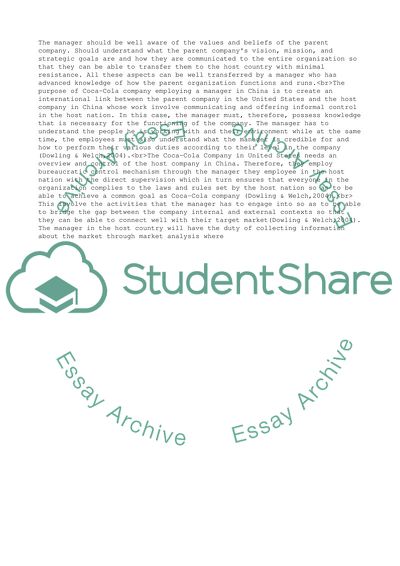Cite this document
(CROSS CULTURAL EFFECTIVENESS - CULTURE GAP AND EXPATRIATE TRAINING Research Paper, n.d.)
CROSS CULTURAL EFFECTIVENESS - CULTURE GAP AND EXPATRIATE TRAINING Research Paper. https://studentshare.org/management/1872044-cross-cultural-effectiveness-culture-gap-and-expatriate-training
CROSS CULTURAL EFFECTIVENESS - CULTURE GAP AND EXPATRIATE TRAINING Research Paper. https://studentshare.org/management/1872044-cross-cultural-effectiveness-culture-gap-and-expatriate-training
(CROSS CULTURAL EFFECTIVENESS - CULTURE GAP AND EXPATRIATE TRAINING Research Paper)
CROSS CULTURAL EFFECTIVENESS - CULTURE GAP AND EXPATRIATE TRAINING Research Paper. https://studentshare.org/management/1872044-cross-cultural-effectiveness-culture-gap-and-expatriate-training.
CROSS CULTURAL EFFECTIVENESS - CULTURE GAP AND EXPATRIATE TRAINING Research Paper. https://studentshare.org/management/1872044-cross-cultural-effectiveness-culture-gap-and-expatriate-training.
“CROSS CULTURAL EFFECTIVENESS - CULTURE GAP AND EXPATRIATE TRAINING Research Paper”. https://studentshare.org/management/1872044-cross-cultural-effectiveness-culture-gap-and-expatriate-training.


